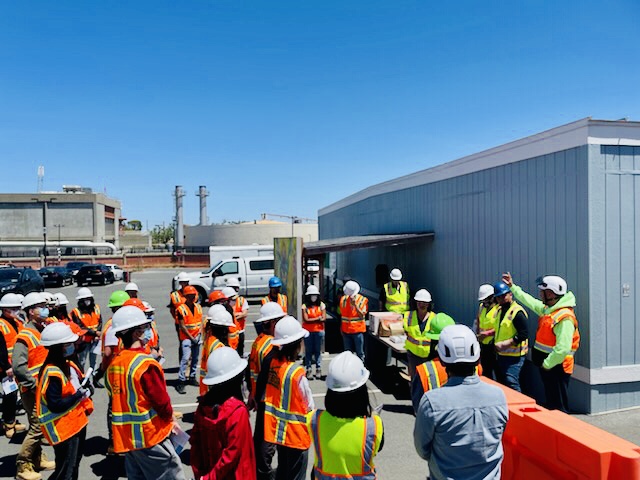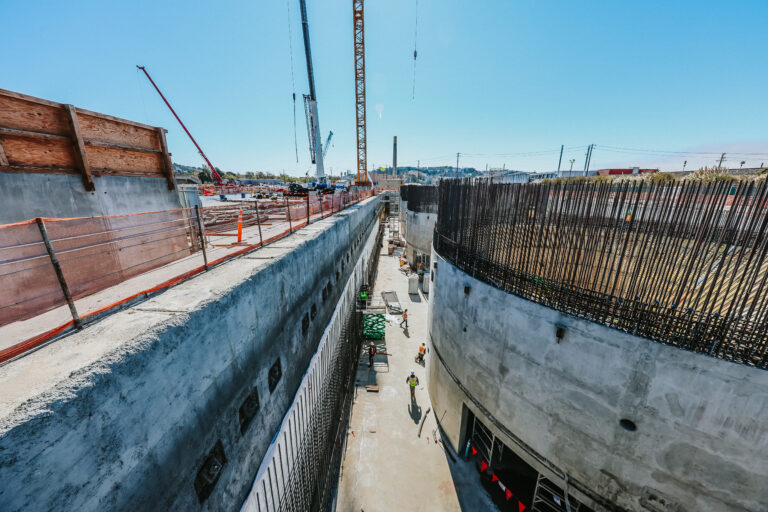Author: Lana Piskorowski
The Biosolids Digester Facilities Project (BDFP) project is transcending the conventional boundaries of construction and industrial development. At its core, it’s a story of revitalizing the Bayview-Hunters Point district, a historically underserved community, through innovative apprenticeship programs, local business collaborations, and a profound commitment to community integration. The initiative’s impact extends well beyond revamping infrastructure to San Francisco’s largest wastewater treatment plant facility to people and placemaking.
Building upon this foundation, the MWH-Webcor Joint Venture (JV) has been working with trade unions to place workers into apprenticeship programs. Local businesses are engaged in hiring these individuals, providing them with opportunities to build skills and gain invaluable experiences. About 70% of the apprentice hours on the job site are being performed by young people who are from these communities. It’s giving them career opportunities on the project, which can lead to long-term employment in the union with well-paying jobs and pensions—construction being one of the last pension-paying jobs that doesn’t require a college degree.

Key to this initiative has been Jorge Torres, Health and Safety Manager at MWH. Some of his team who got their start in the local hire initiative are paving their way forward. Ty‘Asia Reynolds is one such example, who is now the Safety Clerk onsite. Getting on-the-job training, mentorship, and skills has helped her find her career footing. Tyasia shares, “This project and the people here have given me opportunities that I’ve never been offered in my life. They give me room to grow; they give me room to explore; they give me room to mess up and learn from my mistakes. I really appreciate everything here.”
Torres is deeply proud of the team that he’s put together. “By the time we’re done here in 2028, Ty’Asia will be able to run her own project and be a Safety Manager on her own. It’s things like that that, maybe even more than building the digester tanks and installing the Cambi system, it’s the legacy that we’re going to leave, making a lasting impact in the community and locally.”
There is a strong sense of camaraderie and mutual support that binds the team together. Under the leadership of Kathryn Mallon, managers such as Torres have been able to cultivate a culture of high expectations and collective responsibility. This culture extends beyond the work too. A poignant example of this camaraderie was when a team member lost their tool bag. In response, everyone on site banded together, pooling resources to purchase a new toolset. This act of solidarity exemplifies the team’s ethos, as Torres eloquently puts it: “It’s that feeling that everyone’s really their brother’s keeper.”
The MWH way is also about much more than staffing the BDFP project. It’s about creating meaningful and impactful opportunities for community members to contribute to significant development in their own backyards. Integrating the neighborhood into the project to ensure equal access has involved the participation of more than 100 local businesses, with over two-thirds of these businesses being from the adjacent hyper-local neighborhood. Many of these businesses never get a second look but have skills and needs that have been essential to the overall success of the project. This includes all areas of the project, working on lifting cranes, doing rebar work during the concrete phase, bird deterrence, cleaning and debris removal, and administrative tasks. Other local businesses will come on board as the project progresses, from local landscape firms to painting and drywalling.

Community outreach and investment has been multifaceted and vibrant. The MWH family participates in highway cleanups and tree planting, demonstrating a commitment to environmental stewardship in San Francisco. The safety team under Torres has been offering OSHA training to equip local youth and aspiring workers with essential safety knowledge and skills, which will help nurture safer, more informed work environments in the future. In November, workers supported families in need with a turkey drive, providing special food boxes for Thanksgiving so families had all the ingredients they needed for a holiday dinner. They’re also brightening the children’s holiday season by supporting the Toy for Tots holiday toy drive.
The BDFP team has also collaborated with local community leader Roberto Hernandez, of the Mission Food Hub and the San Francisco Lowrider Council, who has been a key figure in the production of Carnaval for over 45 years. Their joint efforts include painting banners and refurbishing donation boxes to aid in providing groceries for struggling families.
In elementary schools, members of the project team are encouraging young students to think about the skilled trades and construction industry, as well as long-term planning of water infrastructure upgrades to achieve clean and protected water quality. The second and third grade kids of Bayview-Hunters Point have also played a role in beautifying the facilities, creating art murals on panels. This is raising awareness and appreciation for art’s value, urban design, and strengthens the connection with people and the places they share.
When I go home at night and talk to family, I find myself talking about the community. The amount of outreach, the number of efforts that we do with community-based organizations, the amount of volunteering that we do, it just makes you feel good.
Jorge Torres – Health & Safety Manager, MWH Constructors
There’s a sense of community and civic pride that resonates with team members like Torres in their work on the project. “When I go home at night and talk to family, I find myself talking about the community. The amount of outreach, the number of efforts that we do with community-based organizations, the amount of volunteering that we do, it just makes you feel good.”


